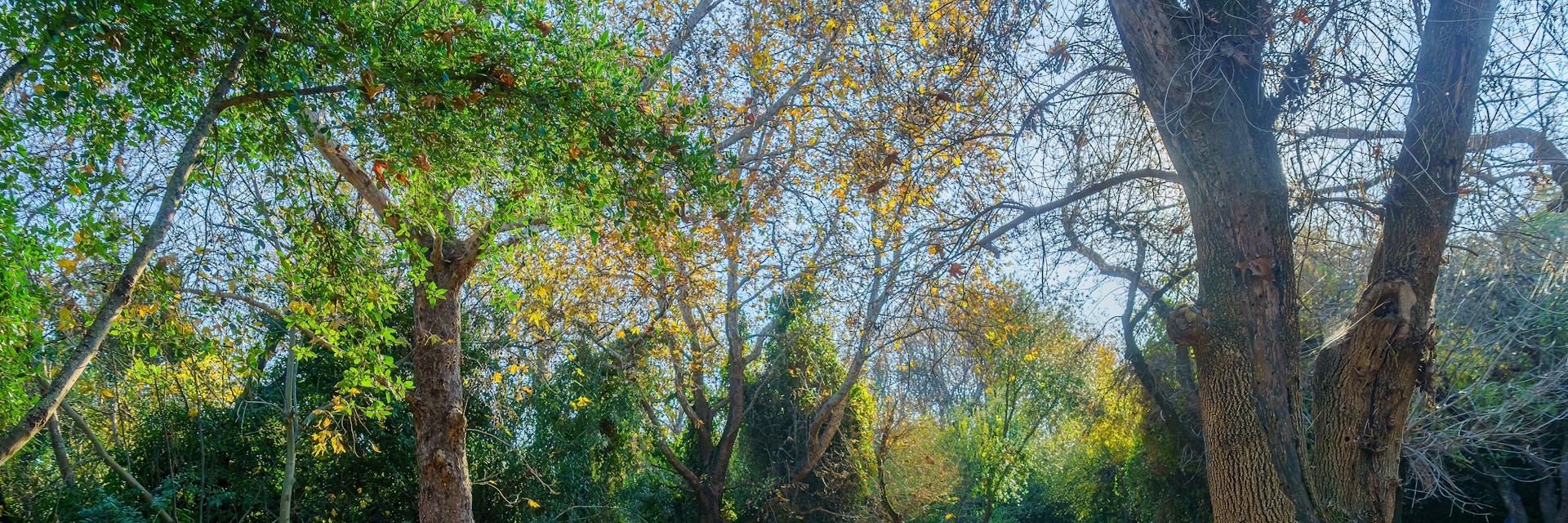This half-square-kilometre reserve, 1.6km north of Rte 99, boasts two major attractions. The first, an area of lush forest, is fed by year-round springs that in normal years gush 8 cu metres of water per second into the Dan River (the most important tributary of the Jordan). The second is the remains of a grand ancient city inhabited by the Canaanites in the 18th century BCE and the Israelites during the First Temple period (from the 12th century BCE).
You can explore the reserve on three trails, sections of which are virtual tunnels through thick brambles and undergrowth: the Short Trail (45 minutes), the Long Trail (1½ hours) and the Ancient Dan Trail (two hours). Significant sections are wheelchair accessible. All pass a 40cm-deep wading pool, a great place to cool your feet (swimming is prohibited elsewhere in the reserve).
Because the reserve is a meeting place of three ecosystems, it supports a surprisingly varied selection of flora and fauna, including the Indian crested porcupine and the endangered fire salamander, a speckled orange-and-black critter with five toes on its back feet but only four on its front feet. Some of the reserve’s non-native tree species, including eucalyptus (gum) and silver poplar, are being cut to make room for native species.
The Tel Dan Stele (House of David Stele), found by an archaeology team from Hebrew Union College in 1993, is a fragment of a 9th-century-BCE tablet in which the king of Damascus boasts, in Aramaic, of having defeated both the ‘king of Israel’ and the 'king of the House of David’. This is the earliest known reference to King David from a source outside the Bible; the original is at the Israel Museum in Jerusalem.








